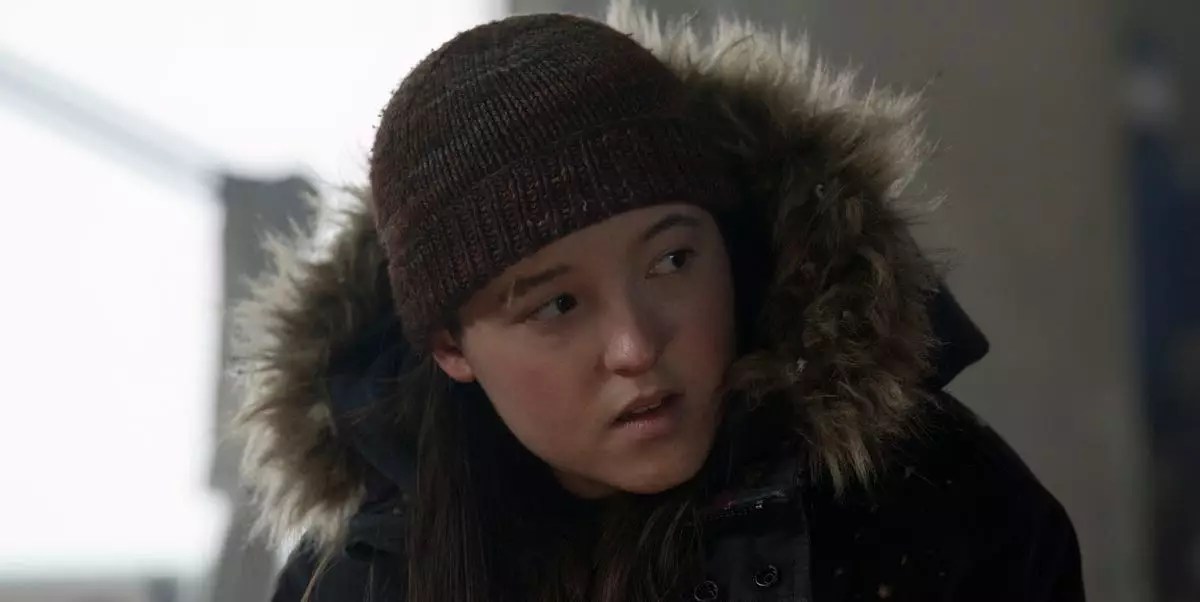In the realm of storytelling, music often serves as an emotional conduit that enhances the narrative and deepens viewers’ connections to the characters. The recent episode of *The Last of Us*, titled “Through the Valley,” exemplifies this phenomenon masterfully. As viewers watch Ellie (Bella Ramsey) grapple with the heart-wrenching loss of her father figure, Joel (Pedro Pascal), the acoustic performance of the poignant song “Through the Valley,” sung by Ashley Johnson—who voices Ellie in the games—adds a haunting layer to an already devastating moment. This is not just a cameo; it’s a moment steeped in meaning and nostalgia, bridging the gap between the video game and its televised adaptation.
The song, originally composed by Shawn James, is replete with themes of despair and longing, which resonate profoundly within the context of the story. Ellie’s mournful performance blossoms within a scene that is visually stark yet emotionally rich. Johnson’s involvement in this episode transcends mere appearance; it subtly integrates the lifeblood of the game into the new medium, enveloping us in a sensory experience that fans have yearned for since the beginning. By resurrecting Johnson’s voice in this pivotal moment, the creators reinforce the significance of familial connections within the show’s unforgiving world.
Layers of Symbolism and Character Insights
What makes this episode particularly noteworthy is how the song and Johnson’s role as Ellie’s mother intertwine to offer deeper insights into Ellie’s character. The show continues to unravel intricate themes surrounding love, loss, and survival. The narrative is markedly impactful when considered alongside the game’s lore. Earlier in Season 1, Johnson’s character—Ellie’s mother—gives birth to her under tragic circumstances, amplifying the emotional stakes further. Now, as the audience witnesses Ellie at her most vulnerable, the specter of familial bonds looms large.
The symbolism present in “Through the Valley” signals a turning point not only for Ellie but for the entire narrative arc of the series. As she navigates the aftermath of a harrowing attack on Jackson, the chaos outside mirrors the turmoil within her. Ellie, physically injured and emotionally exhausted, embodies the struggle between resilience and despair. The song’s melancholy refrain resonates deeply, suggesting an intertwined fate for both Ellie and Joel—two characters who have clung to each other as lifelines amidst chaos and decay.
This intersection of musical storytelling and character development enhances the show’s narrative depth. As co-creator Neil Druckmann noted, the selection of the song reflects the tones, themes, and emotional landscapes integral to Ellie’s journey. The notion that Ellie feels “damned” despite being physically alive echoes the classic tenet of survival in a post-apocalyptic world where loss hovers relentlessly on the fringes.
Unexpected Artistic Choices Redefining Narrative Techniques
While some viewers may have expected a traditional, rousing score to commemorate such grief, the decision to employ a simple acoustic ballad speaks volumes about the show’s commitment to authenticity. The stark arrangement creates a haunting ambiance, leaving spectators in a contemplative silence rather than overt emotional theatrics. It challenges the conventions of how loss is typically portrayed, forcing the audience to linger in the anguish alongside the characters.
The layering of personal tragedy with the broader narrative reflects a poignant exploration of how relationships transform in dire circumstances. Despite the chilling reality, the episode offers a glimpse into what makes *The Last of Us* resonate so deeply with its audience: the human condition, stripped bare. In a world filled with terror, the fragility of love surpasses mere survival. It is these emotional revelations that ensure *The Last of Us* will remain a cultural touchstone, reminding us of the complexities of existence, even amid despair.
By embracing unconventional methods in storytelling and leveraging the power of music, the creators of *The Last of Us* are not just creating television; they are weaving a rich tapestry of human experience. In doing so, they hark back to the roots of what it means to connect through art, leaving a resonant echo long after the credits roll.


Leave a Reply